A product is a clearly defined package of services that can be sold in identical form to multiple customers. It's characterized by repeatability and standardization. A product has a fixed name, a pricing model, and a defined scope of services that can only be configured to a limited extent. Products are aimed at a broad target group and are not completely individual services.

Typical examples are standardized workshops, hosting packages, mini web presences, or license models. The customer can adapt the product to their needs, but the core service always stays the same.
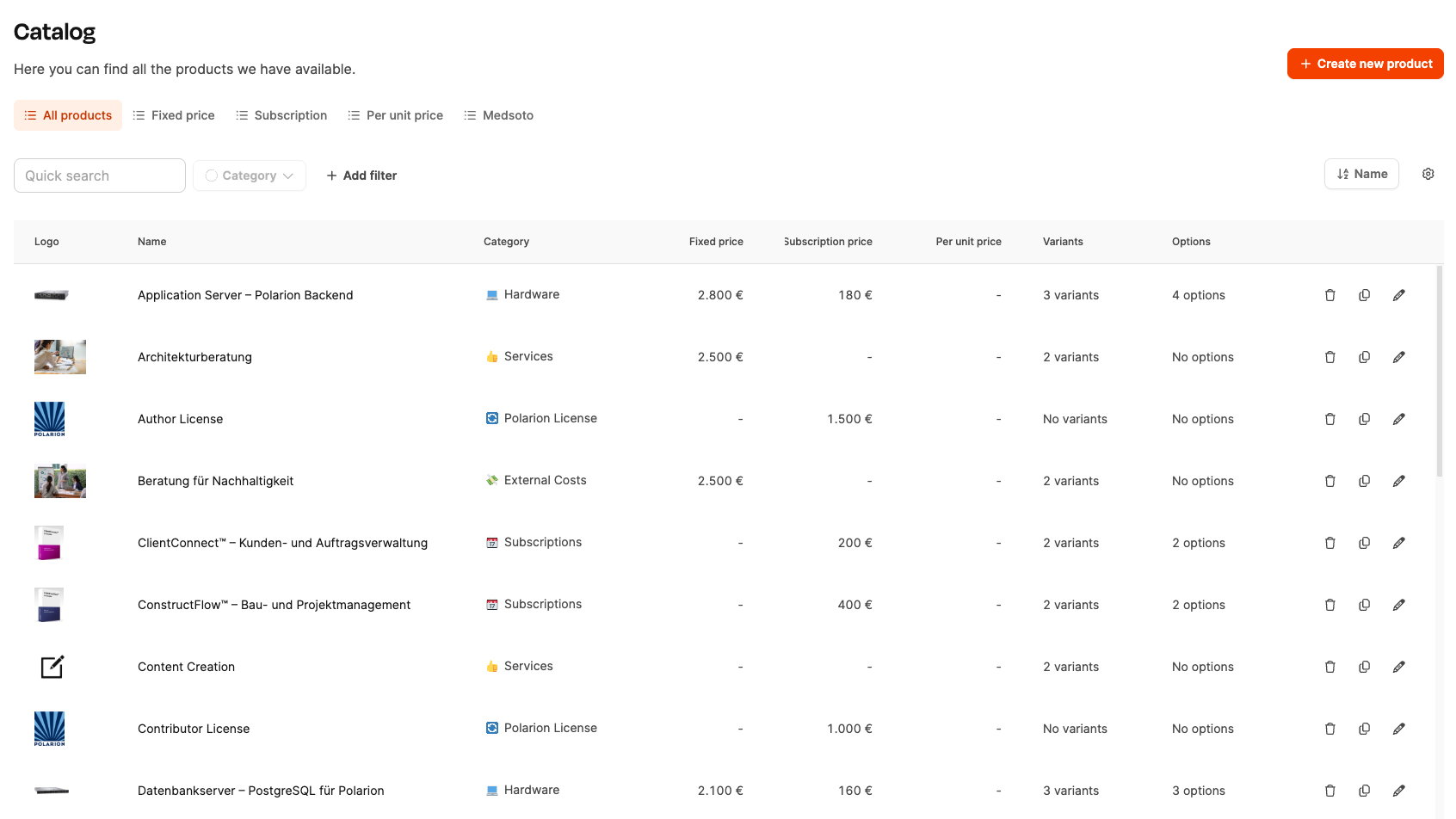
All recurring and standardized service packages are recorded in the product catalog. From here, products are assigned to projects.
To the product catalog
Products can be stored with three types of pricing:
Fixed price (one-time billing)
Subscription price (recurring at configurable frequency)
Price per unit (variable multiplier, e.g. number of users)

Variants let you create alternative versions of the same product, for example different feature levels of a SaaS package. You can set individual prices for each variant.
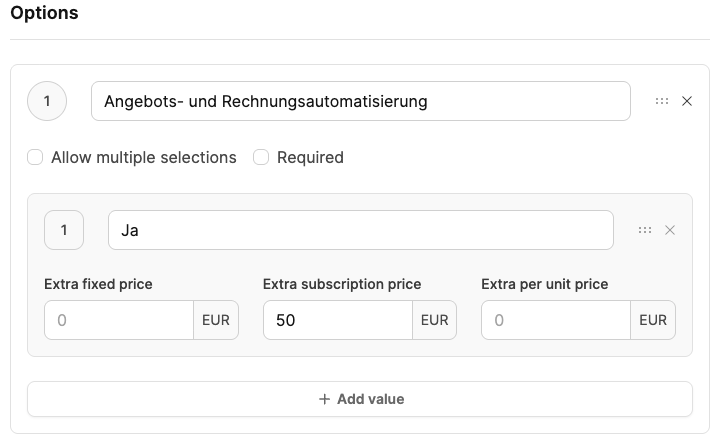
Options add extra features to a product. They're great for additional capacity, premium support, or more features. Options add a surcharge to the base price.
You can add products to projects here: Projects – Project planning tab
In many projects, service providers want to offer standardized add-on services alongside the custom project work. These are saved as products directly in the project and then included in the billing.
Products link the one-off project work with ongoing services and help you keep up a lasting customer relationship. Example: Along with the website, you also offer a hosting and support package.
You can add the following product types to projects:
One-time product versions
Subscription products
Variants and options
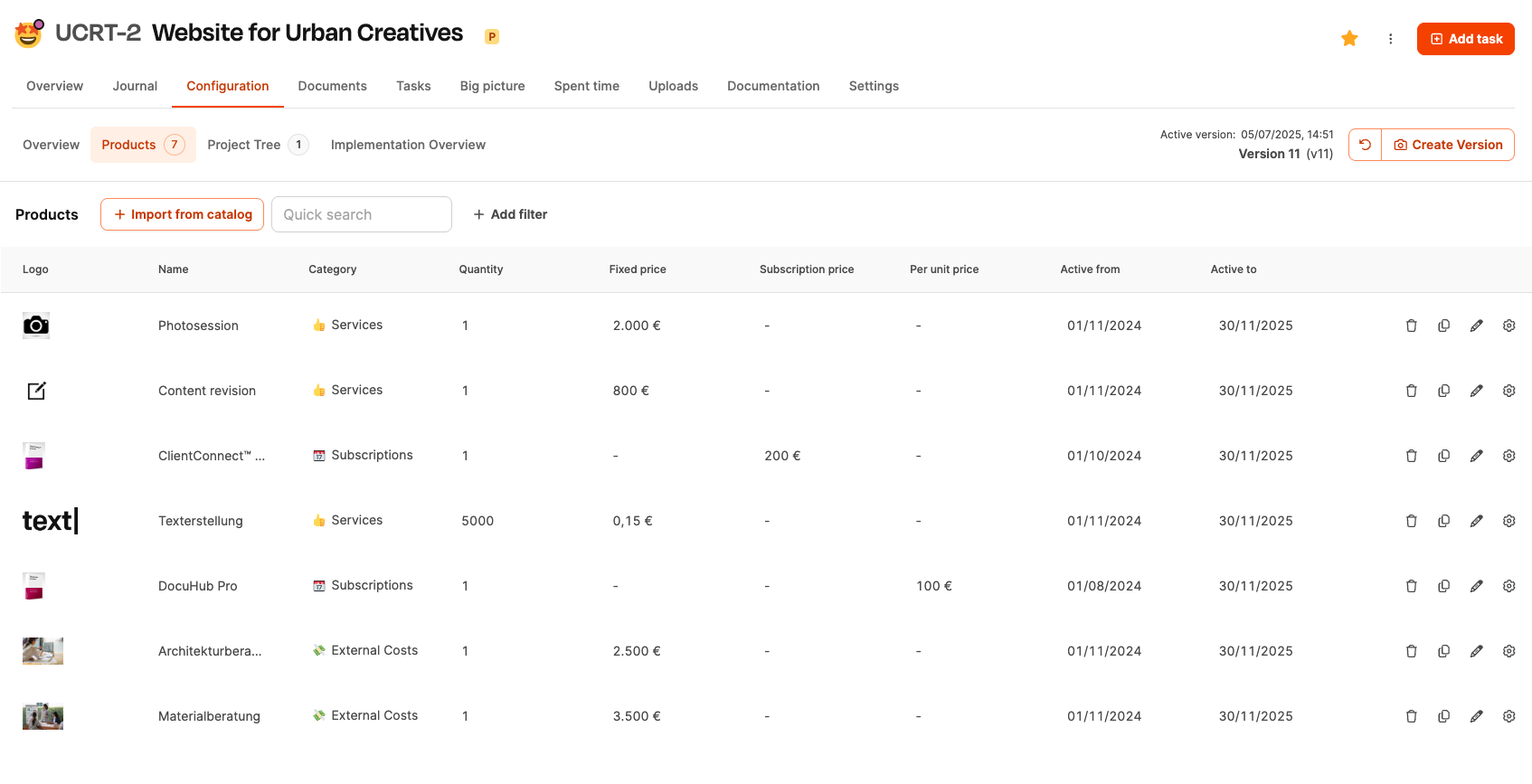
Products are added in the Configuration tab of a project and once saved, show up in their own block in the project.
For one-time products, billing starts as soon as the project reaches the “Bill” status. Subscriptions are due monthly, quarterly, or yearly, depending on the setup. For single projects, subscriptions are only billed after the project is completed.
Here's how you add products to tickets: Add products to tickets
In a lot of cases, extra product-like services come up within single tickets, like plugins, setups, or fixed-fee upgrades. These products can be linked directly to the ticket.
Linking products straight to tickets has a few perks:
Clear context: The product shows up exactly where the service was provided.
Automatic transfer to invoicing: No need to enter things twice.
Understandable invoices: Customers instantly see what they're paying for.
Efficiency boost: No need to add single line items when approving invoices.
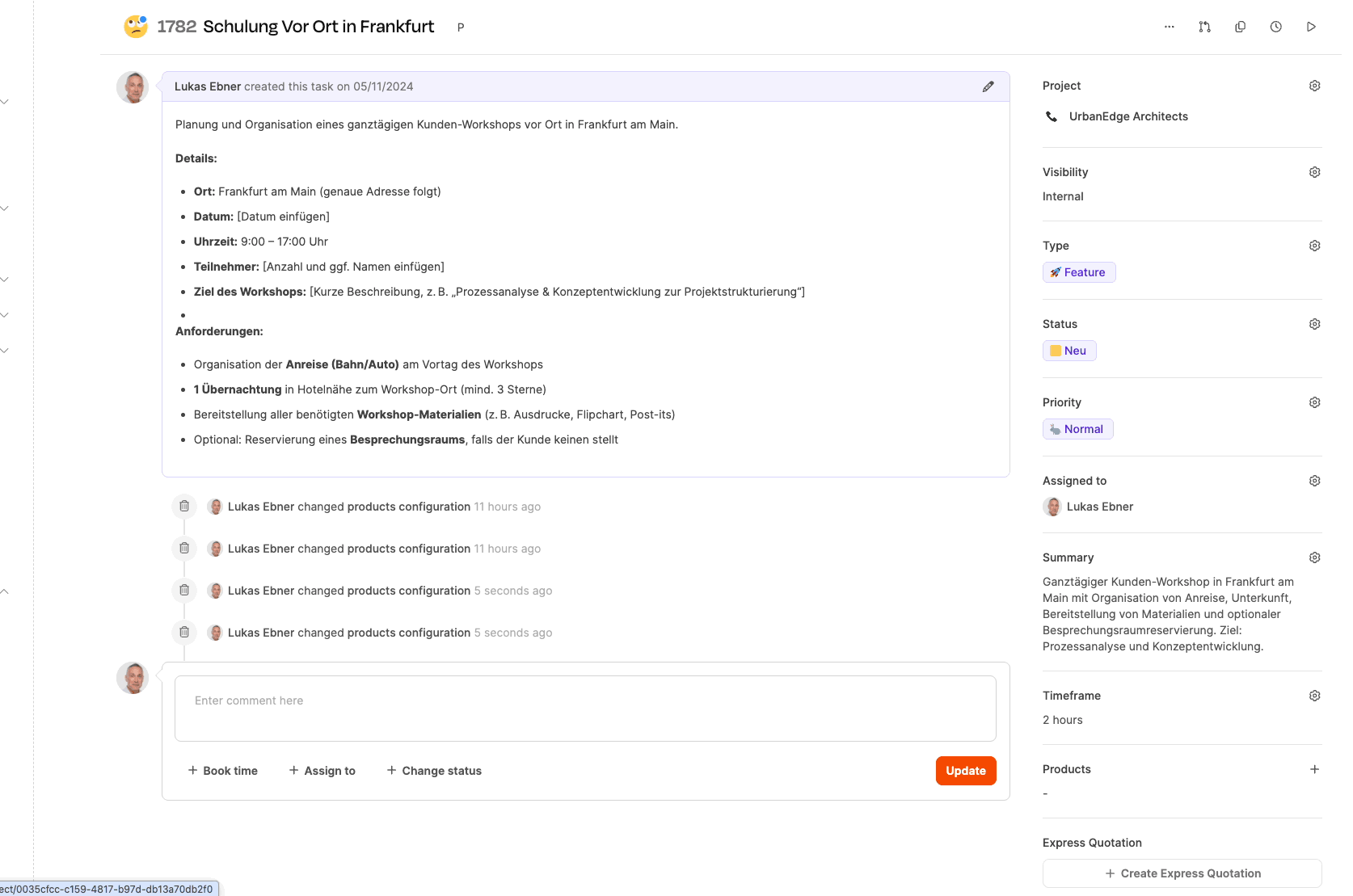
Go to the ticket you want to assign a product to.
In the ticket's right-hand section (or from the three-dot menu) you'll find the “Add product” button.
A list of available fixed-price products from your catalog will pop up. Choose the right one, adjust quantity or name if you want, and save.
The product will now be listed in the ticket and show up on the next invoice once the ticket is done
For products that were added directly to the ticket, you can optionally create an express offer. Express offers let you quickly and easily send your customer an official quote for a single ticket. The express offer can cover a work time estimate AND / OR the fixed prices of the products added to the ticket.
About express offers
Besides the standardized pricing rules from the Leadtime product catalog, the system also gives you the option to save free subscription models right inside projects or mandates – no matter if a product catalog entry exists or not.
This feature is especially handy for:
customer-specific service packages
custom agreements outside the catalog
flexible pricing models during the transition or test phase
Free subscriptions are managed in the project under Settings → Subscription Billing.
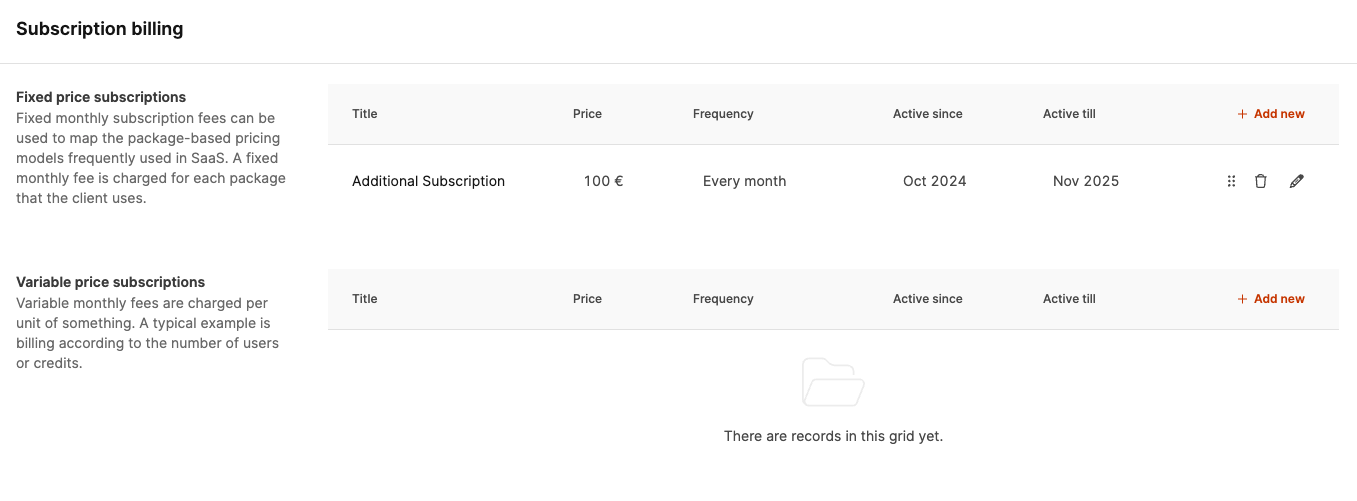
Flat-rate subscriptions represent all-inclusive service packages. They're automatically suggested for billing according to the chosen frequency.
Variable subscriptions are based on multipliers, like number of users. When billing, you'll need to enter the quantity manually.
Open the project
Go to Subscription Billing
Choose type and frequency
Save the subscription
All due products are collected in the invoice review. The review happens over a layer that appears over the interface after you pick a line item. The list stays on the left, and the details pop up on the right in the layer.
One-time products show up automatically as soon as the project is ready for billing. These include:
Product name
Net amount

Repeat fixed price products are suggested in the set interval. The service period is always added automatically.

Variable subscriptions need a manual quantity entry in the layer. The calculated net value comes from unit price and multiplier.

Products from express offers show up as their own item with ID and fixed amount. You can check them in the layer.
After checking all product items, you can use the Bill button to create the invoice. The invoice is then moved to the Receivables section and considered released.